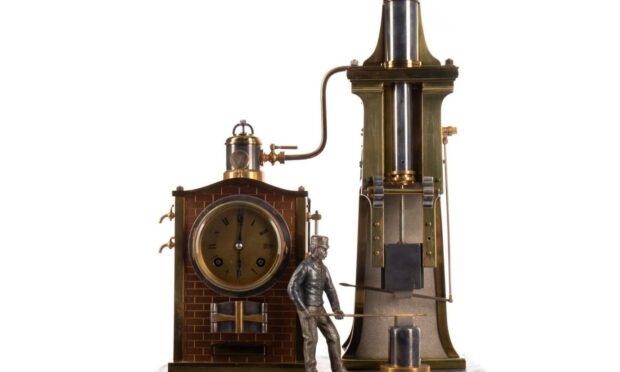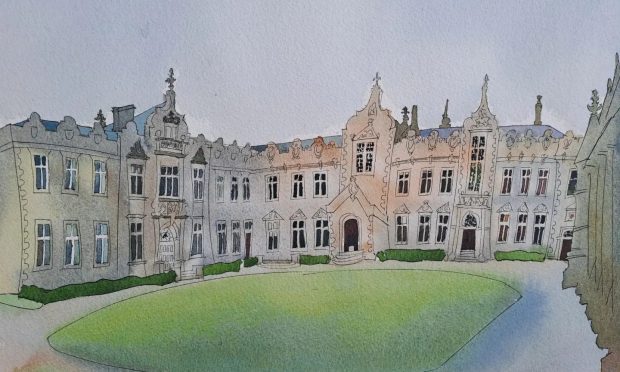Do you like automatons – those windy-up collectables which were the AI robots of their day?
Prices for these clockwork rarities are on the up, particularly in American salerooms, where availability and the collecting interest is strong.
Closer to home, an impressive French gilt and patinated metal ‘foundryman’ automaton clock took an impressive £11,000 at McTear’s in Glasgow on November 4, and is certainly worthy of mention.
Tribute to French ingenuity
Some 17 inches high, raised on a slate base, with a brass and silvered dial, fitted with an eight-day movement and all protected under a glass dome, the late 19th Century clock leans heavily to French ingenuity.
While American manufacturers opted for tinplate money banks and sophisticated toys operated by key wind, the French put their mechanical muscle into industrial clocks with automatonic (if that’s a word!) movements.
It’s probably difficult to see from today’s photograph, but this clever little timepiece works something like this – as the clock tick-tocks on the mantlepiece, a pendulum connected from the furnace on the left, and linked underneath the case, causes the steam hammer on the right to rise and fall, as a figural foundry worker shapes a steel rod.
A prizewinning design
Aptly known as The Foundryman, this design was made by Andre Romain in Paris in the last decade of the 19th Century and was a medallist at the Paris Exposition of 1900.
In good working order and ‘ticking’ most boxes on condition, the clock had star billing in McTear’s sale and, at £11,000, duly topped the results.
My notes show similar examples taking £4500 at Christie’s in 2007 and the equivalent of £5000 in 2018 at Fontaine’s in the United States.










